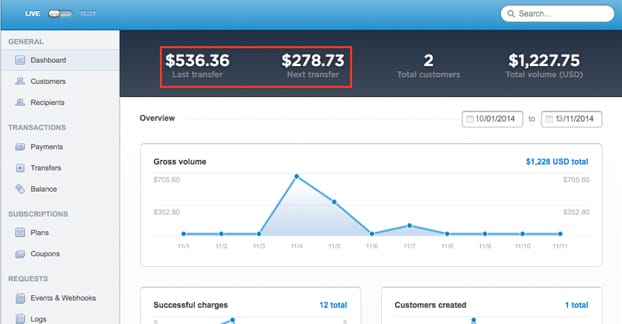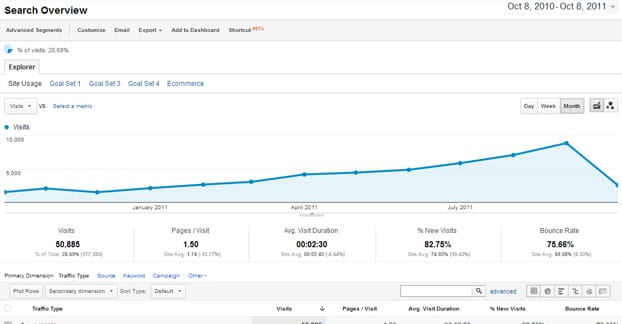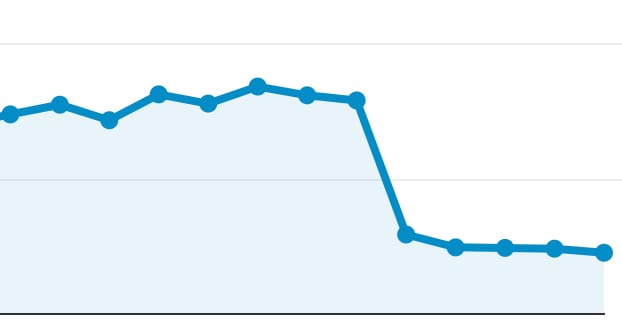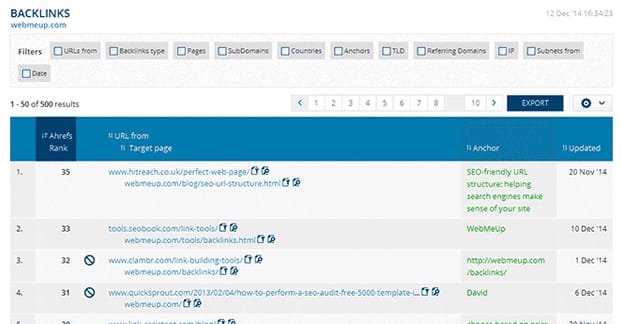Guest blogging is one of those hard to quantify techniques that you almost have to take on faith as worthwhile. I’m one of those people who posits that guest posts have a lot of intangible benefits, while others who study purely tangible returns have other kinds of opinions. Let’s discuss it.
There are basically five ways you can get value from guest posts. You have to balance the benefits you get with the investment you put in. As such, we need to discuss the ROI problem from both sides.
Initial Investment
The initial investment of a guest post may or may not be very high. Generally, you have to invest a bunch of time into finding guest post opportunities, but not all individual opportunities come from this research. Sometimes people just send you offers in your email, or you might meet someone at a conference who offers you a chance to write for them. The time investment can vary from post to post. Plus, any subsequent post for a site you’ve already researched is riding off that previous investment. The more you write for one site, the greater you stretch that investment.
Then you have the monetary front. You might be paying for guest blogging tools, access to lists of sites that accept guest posts, or other research items. Of course, many of these tools can pull double duty; any URL ranking research tool can help you rank yourself or your competition as well, for example.
On a more consistent basis, you might be paying a writer to write your guest posts for you. If that’s the case, you have a defined monetary cost per guest post that doesn’t change or reduce as you write more.
All of these factors need to be compared to the returns you get, which is pretty tricky. You’ll see why momentarily.
Potential Returns
As I mentioned above, the various returns on investment you can get from guest posting can be distilled down into five major categories. These categories are money, traffic, backlinks, awareness/trust, and relationships.
Category 1: Money
I put money at the top because it’s usually exclusionary from other sources of value. You can make money guest posting, either because the host site pays for it, or because someone else pays for you to include their link in your guest post. If you advertise a regular contributor position on Forbes, people will pay out the nose to get their link included in your posts. If you can included it organically and in a valuable way, so as to make sure it isn’t filtered or removed, you can take in a lot of cash.
When you do so, however, you end up having to use your rare link slot on someone else, or you end up being unable to really promote yourself because you’re promoting the host site instead. The assumption is that your payment is your compensation, rather than your link or traffic. It’s easy to calculate a return on investment here, at least; just weigh the cost of the post against the money you get from it.
Unfortunately, all of the high end sites will rarely or never pay guest contributors. The ones willing to pay generally hope their association with you benefits them, meaning they’re aiming for people who are already established. You have to have a blog in a good position to make those kinds of deals.
Category 2: Traffic
I’ve mentioned this before, and others have written about it as well. Guest posts are often very bad for traffic. Like, astonishingly bad. Tim Soulo recorded his traffic numbers for 239 guest posts across 78 relevant blogs, and found that he averaged a meager 56 visits per post. That’s nothing. You can get more than that with a well-timed tweet! It’s only a few bucks worth of paid advertising on any PPC network.
Of course, this falls victim to the 80/20 rule pretty fast. The rule, also called the Pareto Principle, states that you’re typically going to get 80% of your results from 20% of your work. And, indeed, as Tim’s post goes on to say, 15% of his posts brought in over 100 visits, while 85% of them had less than 100 visits. It’s a pretty clear divide.
His study also has another flaw; he only considered the first week worth of traffic. As many of you know, writing good posts as guest posts typically means writing evergreen content. After all, most sites have their own staff writers to cover the timely issues. By the time you can pitch a timely subject, hear back from an editor, and get a submission through the editing process to publication, you’re behind the times.
The very nature of guest posting, then, means that high initial value posts don’t work. Anything that could get you a viral spike in traffic – that initial burst Tim was measuring – is going to be covered by staff writers instead.
At the same time, traffic compounds over time. Sure, if a post only gets you 45 hits in a week, that’s not much. It’s barely anything. But if that post gets you 45 hits a week for four years, that’s quite a large stack of traffic. It builds up and compounds. Every time you publish a new guest post, you’re adding more to the per-week traffic number, and you keep getting that traffic week after week, month after month.
Sure, yes, posts drop off over time. That’s why we focus on evergreen content. We try to future-proof it as much as possible, to keep those traffic numbers as long as possible. By the time that first post and those first 45 hits per week have dropped off, we’ve written 25 other posts, each pulling in their own bits of traffic each week.
To his credit, Tim does go on to explain this very concept in his post, with examples from Peter Sandeen. He calls it Secondhand Search Traffic, and it’s a worthwhile reason to guest post.
Of course, you have a decision to make. You write a killer piece of content; do you publish it on your site or on a guest post? If it ranks well in Google, and it’s a guest post, that’s a lot of visibility and value to a site that isn’t yours. You get secondhand value. Is that worthwhile? Yes, but only if your site didn’t have a chance of ranking on its own. If you could conceivably be the competition in that keyword query, you might be better off writing for your own site.
This is why the ultimate goal of guest blogging is to be writing for the sites much, much larger than your own. You want to end up writing for sites like Ahrefs or Moz, not your direct competition.
You can also benefit from expanding to another niche. Every marketer would like to get guest published on Moz, but readers of Moz are so saturated in marketing content that they’re unlikely to click through. On the other hand, if you bring your marketing expertise to another site, like a beauty blogger or a food blogger, explaining to their readers why marketing can make their site more effective, you can get a lot of people checking out your content. The food and beauty niches aren’t as saturated with content, after all.
Category 3: Backlinks
Backlinks are, of course, extremely valuable in marketing. Links make the Google world go ‘round. A good site has a good backlink profile, and a good backlink profile means a lot of different links from a diverse range of sources.
There has been major pushback over the last few years about guest posting for links, up to and include Matt Cutts’ famous “death of guest posting” blog post. The fact is, a lot of great sites don’t accept unsolicited guest posts, and the majority of the sites that do will either disallow links entirely or will nofollow them.
There is some evidence to suggest that nofollowed links and even implied links are still valuable to a site directly within the search ranking. It’s been mentioned in Google patents and in other ways, though it’s of course extremely tricky to measure.
The fact is, if you’re counting links as your primary goal for guest posting, you’re going to be disappointed. You won’t get very much that’s acceptable. Your best bet is simply to count links as a bonus when they happen, and otherwise focus on other sources of value for your investment.
Category 4: Awareness and Trust
Awareness and trust in you as an author and your brand as an authority can both come from guest posting, but they’re both extremely hard to measure. There’s no way to track it via Google Analytics, after all. If 1,000 people read your guest post, but none of them click through, it seems like you get nothing from that guest post. If 100 of those people then happen to stumble across your product later, recognize your name from that guest post on a site they trust, and convert, you have no way of knowing that guest post influenced their purchase decision.
It’s a ton of fuzzy value that is impossible to measure, but very tangibly beneficial. It’s why so many sites, when they contribute to big name blogs, put the logos of those blogs in their landing pages. It’s social proof. It’s legitimacy. It’s a way to say to your readers that “hey, my site might be small and you might not have heard of me, but I’m totally legit. Look, Forbes wouldn’t have published my content if they thought I was a scam.”
This is another reason why big name blog are our primary guest posting targets. If I write a guest post for Bob’s SEO Shack, who cares? You don’t know who Bob is or why he should be trusted, so his vouching for me means nothing. On the other hand, if I write for Forbes, or Moz, or Entrepreneur, or Fast Company, you know who those companies are. You know they vet their authors, so you know I made it through their vetting. You know I must have some level of value, because I made it through.
Category 5: Relationships
How often have you heard the phrase “it’s not what you know, it’s who you know”? Richard Branson has said “Succeeding in business is all about making connections,” and with guest posting, that’s extremely true.
Guest posting allows you to build relationships with editors and site owners. Once you’ve made a connection and proven that you know what you’re talking about, you can get firsthand value from that relationship. You write for Moz, and other Moz contributors will count you as a peer, opening the door to other site contributions, deals, and who knows what else.
You also have the secondhand value of such high placed guest posts. Ask any high-level marketer who guest posts regularly what kind of secondhand value they’ve gotten out of it and you’ll get all kinds of answers. Josh Steimle wrote one post for Forbes and gets ~25 leads per month, accounting for $50,000 worth of monthly revenue, just from it. Ryan Stewart got his largest client from a guest post on a major site. Jeffrey Kranz and many others have had editors reach out with book deals and similar offers. Guest posts can lead to great opportunities.
These are, unfortunately, both impossible to predict and inconsistent. You can’t expect a book deal or a major client out of every guest post you publish. You can only measure them to weigh against your initial investment when they happen.
So, is guest blogging going to have a positive ROI for you? There’s no way to know. All of the best, most valuable benefits from guest blogging are intangible enough that they’re impossible to measure or tie directly to a guest post, unless the client or customer specifically mentions it. Even then, awareness isn’t something you can measure easily. Guest posting can have a great ROI, but it’s not an ROI you can print out in a report. You just have to take my word for it.
 ContentPowered.com
ContentPowered.com











